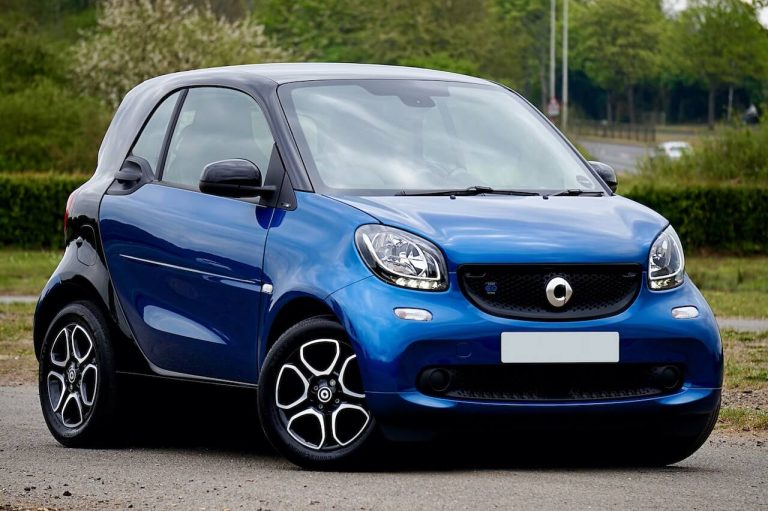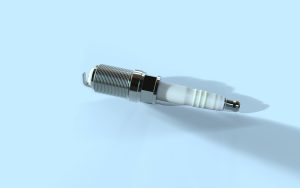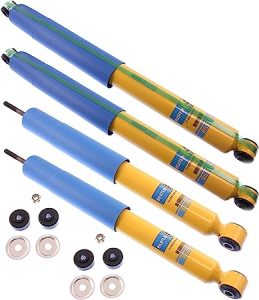As technology pr ogresses, smart cars are quickly becoming a top preference for many people due to their exceptional efficiency, convenience, and eye-catching design. But how much do smart cars weight actually? Knowing the weight of your vehicle is essential to ensure it perfectly suits all of your needs. Arm yourself with this knowledge to discover if the car offers maximum fuel economy, cargo capacity and which safety features it has.
In this insightful blog post, we will be exploring how much do smart cars weight on average as well as how certain factors can influence a smart car’s mass. We’ll also look at variations between different models and trim levels. Finally, we’ll discuss how understanding the weight of your smart car can benefit you and how to find out more about its weight.
Table of Contents
ToggleWhat is a Smart Car?
Before we uncover just how much do smart cars weigh, let’s first briefly explore what a smart car is. Smart Cars are the modern way to travel with remarkable fuel efficiency, immense comfort, and advanced safety measures – all rolled into one!
It stands out from other cars due to its small size and weight smart engineering, which significantly reduces its fuel consumption. In fact, Smart Cars are capable of achieving up to 45 mpg in the city and 61 mpg on the highway – both providing higher returns than many of today’s traditional gas-powered vehicles.
Their interior design also provides incredible comfort and convenience on long drives and improved cargo space compared to similar models. Regarding safety features, Smart Car was the first manufacturer to receive the maximum 5 stars in crash test ratings by the Euro NCAP. This means that you’ll feel safe without sacrificing style or performance.
Why Is It Important To Know How Much They Weigh?
Now that you have a firm grasp on the concept of smart cars let’s investigate how much does a smart car weigh. When you understand the weight of your vehicle, it can assist you in making sure that it meets all necessary requirements for whatever situation is at hand. This includes everything from its power and fuel efficiency to how much cargo it can accommodate and its overall safety ratings. Knowing these details about your car sets you up for success no matter where the road may take you!
Weight also affects the handling and performance of your car. Heavier vehicles are more difficult to control and take longer to accelerate, while lighter ones offer improved maneuverability and a faster response time. Moreover, knowing how much your ride weighs can influence how often parts need servicing or replacing, as well as any maintenance it requires.
Also Read: How to Charge Hybrid Car

How Much Does a Smart Car Weight?
Now let’s take a look at how much do smart cars weight. On average, the weight of a Smart Car lies between 1,500 and 2,500 pounds. Depending on the model type, trim level, and passenger/cargo compacity – this number can fluctuate greatly.
Variations in Weight by Model and Trim Level
Firstly, let’s have a look at the various Smart car models and how their weight changes based on different trim levels. The principal models include the Smart EQ fortwo, Smart EQ forfour, and Smart EQ fortwo cabrio. Each of these vehicles has different weights depending on their specific trim and features.
- The Smart EQ fortwo has a curb weight of approximately 2,050 pounds. It is the smallest and most lightweight model, providing exceptional fuel efficiency and maneuverability. However, depending on your chosen trim level and any additional features, the weight may vary slightly.
- The Smart EQ forfour is a little larger than the fortwo, offering more space and comfort for the driver and passengers. Its curb weight is around 2,150 pounds, with variations depending on the specific features in each trim level.
- Lastly, the Smart EQ fortwo cabrio is a convertible version of the fortwo. Its open-top design adds some weight, resulting in a curb weight of approximately 2,200 pounds, which may also vary with different trims and options.
Factors That Influence Smart Car Weight
Now, let’s explore some of the factors that affect the weight of Smart cars:
Construction Materials
The mass of a smart car is significantly influenced by the materials used during its construction. Older vehicles are usually constructed using weighty components such as steel and iron, leading to an overall heavy finished product. Conversely, in order to create a rigid yet lightweight body without sacrificing stability, many modern smart cars employ lighter elements like aluminum, carbon fiber, and plastic composites. This not only lessens the car’s total heft but also makes them more fuel-efficient — perfect for environmentally conscious drivers!
Battery Weight
Significantly more efficient than traditional cars, smart vehicles typically incorporate electric or hybrid-electric technology–power that largely depends on battery packs. While modern batteries are much smaller and lighter compared to those of a few years ago, they still add substantial extra weight to the car. Electric cars with larger battery packs are generally heavier than their counterparts with smaller packs. However, emerging innovations and advancements in battery technology continue to drive down the overall weight, providing more potential for additional weight reduction in future smart car models.
Aerodynamics
Aerodynamics plays a significant role in the overall weight and efficiency of smart cars. Engineers design them with a focus on reducing air resistance in order to improve performance, fuel economy, and handling. Combining lightweight materials and advanced aerodynamic designs helps create lightweight smart cars that are efficient and easy to drive.
Smaller Engines
Another factor contributing to the overall weight of a smart car is the size of its engine. As smart cars are designed with fuel efficiency in mind, they often feature smaller engines than those found in traditional vehicles. Compact engines are generally lighter, helping to reduce the overall weight of the car. Hybrid models may even have a smaller gas engine combined with an electric motor, which can further lighten the vehicle.
Additional Features
Finally, additional features such as navigation systems, infotainment systems, and climate control may contribute to the overall weight of a smart car. These components can add substantial weight if they’re not properly optimized for weight reduction. More advanced trim levels tend to include more feature-rich packages, which can increase the overall weight of the vehicle.
Also Read: Why Do New Car Tires Wear Out So Fast?
Frequently Asked Questions
How Wide is a Smart Car?
The answer to that question depends on the model, but usually, they measure between 65 and 69 inches. This means that Smart cars are very close in width to many other compact vehicles, making driving easy and efficient. The slim dimensions of this famous car also make it incredibly practical when it comes to parking in tight spaces.
What is Smart Car Max Speed?
The smart car max speed can vary depending on the model you choose, but generally speaking, smart cars embody smartness with speeds reaching up to 110 kilometers per hour. This impressive speed makes smart cars great options for short trips and errands around town or within the city limits. But keep in mind that smart cars are primarily designed for use within urban areas and aren’t ideal for long-distance trips.
What is the Lightest Smart Car?
The lightest smart car is the EQ fortwo, with an approximate curb weight of 2,050 pounds. As mentioned above, this makes the fortwo a great option if you are looking for something that offers exceptional fuel efficiency and maneuverability while also being lightweight and easy to drive.
Where is the Engine in a Smart Car?
Smart cars are powered by an all-electric powertrain, meaning they don’t have a traditional engine like most other vehicles. Instead, Smart cars feature an electric motor located in the rear of the car, which is connected to a lithium-ion battery pack for efficient and powerful performance. This makes Smart cars simple to maintain, as there are no complex parts to worry about.
Conclusion
Smart cars continue to be a popular choice for drivers looking for efficient and lightweight vehicles. With advances in battery technology, aerodynamic design, and smaller engines, the latest Smart car models are engineered to be lighter than ever before. Modern smart cars utilize lightweight materials, advanced aerodynamic designs, and small engines to achieve optimal efficiency without compromising performance. If you want an efficient and lightweight car, a smart car might be the ideal choice for you. They are designed with different models to suit your needs, weighing between 2,050 pounds and 2,750 pounds.
This is why they prove to be increasingly popular – they are lightweight and packed with features. Their lightweight design makes them ideal for urban driving, while their smart features provide efficient performance that drivers can rely on.







